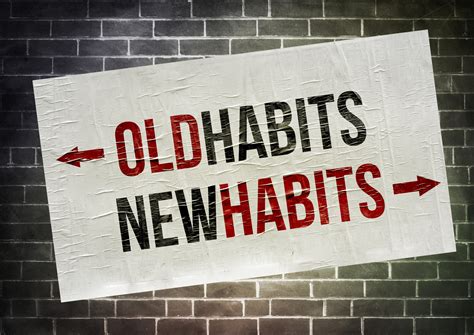Intro
Lower your heart rate naturally with relaxation techniques, breathwork, and stress reduction methods, including mindfulness and meditation to calm cardiac activity and promote overall well-being.
When it comes to maintaining a healthy lifestyle, one of the most critical aspects to focus on is our heart health. A rapid heart rate can be a sign of underlying health issues, such as anxiety, stress, or even heart disease. While medications can help regulate heart rate, there are also many natural ways to slow down your heart rate and promote overall well-being. In this article, we will delve into the importance of maintaining a healthy heart rate, explore the causes of a rapid heart rate, and discuss various natural methods to slow down your heart rate.
A rapid heart rate, also known as tachycardia, can be caused by a variety of factors, including stress, anxiety, dehydration, and certain medical conditions. When our heart rate is elevated, it can lead to feelings of fatigue, dizziness, and even chest pain. Prolonged periods of rapid heart rate can also increase the risk of heart disease, stroke, and other cardiovascular conditions. Therefore, it is essential to take proactive steps to manage our heart rate and promote overall heart health.
Maintaining a healthy heart rate is crucial for our overall well-being, as it allows our heart to function efficiently and effectively pump blood throughout our body. A healthy heart rate can also help reduce the risk of chronic diseases, improve sleep quality, and increase energy levels. By incorporating natural methods to slow down our heart rate, we can take a proactive approach to managing our heart health and promoting overall wellness.
Understanding Heart Rate

To effectively manage our heart rate, it is essential to understand how it works. Our heart rate is controlled by the autonomic nervous system, which regulates our body's automatic functions, such as breathing, digestion, and heart rate. The autonomic nervous system consists of two branches: the sympathetic nervous system, which increases heart rate, and the parasympathetic nervous system, which decreases heart rate. When we experience stress, anxiety, or excitement, our sympathetic nervous system is activated, causing our heart rate to increase. On the other hand, when we are relaxed, our parasympathetic nervous system is activated, causing our heart rate to decrease.
Factors That Affect Heart Rate
Several factors can affect our heart rate, including physical activity, stress levels, sleep quality, and nutrition. Regular exercise can help lower our resting heart rate, while a sedentary lifestyle can increase it. Stress and anxiety can also cause our heart rate to rise, making it essential to engage in stress-reducing activities, such as meditation or yoga. Additionally, a balanced diet rich in fruits, vegetables, and whole grains can help support heart health and regulate heart rate.Natural Methods to Slow Down Heart Rate

Fortunately, there are many natural methods to slow down our heart rate and promote overall heart health. Some of these methods include:
- Deep breathing exercises: Deep breathing can help activate our parasympathetic nervous system, causing our heart rate to decrease.
- Progressive muscle relaxation: This technique involves tensing and relaxing different muscle groups to reduce stress and anxiety.
- Meditation and yoga: Regular meditation and yoga practice can help reduce stress and anxiety, promoting a healthy heart rate.
- Exercise: Regular physical activity can help lower our resting heart rate and improve overall heart health.
- Nutrition: A balanced diet rich in fruits, vegetables, and whole grains can help support heart health and regulate heart rate.
Herbal Remedies
Certain herbal remedies, such as valerian root, passionflower, and hawthorn, have been shown to have a positive effect on heart rate. Valerian root, for example, has been used for centuries to promote relaxation and reduce stress, while passionflower has been shown to have a calming effect on the nervous system. Hawthorn, on the other hand, has been used to support heart health and lower blood pressure.Lifestyle Changes

In addition to natural methods and herbal remedies, making lifestyle changes can also help slow down our heart rate and promote overall heart health. Some of these lifestyle changes include:
- Getting enough sleep: Aim for 7-8 hours of sleep per night to help regulate heart rate.
- Reducing stress: Engage in stress-reducing activities, such as meditation or yoga, to help manage stress and anxiety.
- Staying hydrated: Drink plenty of water throughout the day to help regulate heart rate.
- Avoiding caffeine and nicotine: Both caffeine and nicotine can increase heart rate, so it is essential to limit or avoid them altogether.
Monitoring Progress
To effectively manage our heart rate, it is essential to monitor our progress. This can be done by tracking our heart rate regularly, either manually or using a heart rate monitor. By monitoring our progress, we can identify areas for improvement and make adjustments to our natural methods and lifestyle changes as needed.Conclusion and Next Steps

In conclusion, maintaining a healthy heart rate is crucial for our overall well-being. By incorporating natural methods, herbal remedies, and lifestyle changes, we can take a proactive approach to managing our heart health and promoting overall wellness. Remember to monitor your progress, stay consistent, and make adjustments as needed. With patience and dedication, you can slow down your heart rate naturally and improve your overall quality of life.
Final Thoughts
As we strive to maintain a healthy heart rate, it is essential to remember that it is a journey, not a destination. By taking small steps each day, we can make significant progress and improve our overall heart health. So, take a deep breath, relax, and start your journey to a healthier, happier you.What is a normal heart rate?
+A normal heart rate is typically between 60-100 beats per minute, although this can vary depending on factors such as age, fitness level, and overall health.
Can stress and anxiety affect heart rate?
+Yes, stress and anxiety can cause an increase in heart rate. Engaging in stress-reducing activities, such as meditation or yoga, can help manage stress and anxiety and promote a healthy heart rate.
How can I monitor my heart rate?
+You can monitor your heart rate manually by taking your pulse or using a heart rate monitor. It is essential to track your heart rate regularly to identify areas for improvement and make adjustments to your natural methods and lifestyle changes as needed.
We hope this article has provided you with valuable insights and practical tips to slow down your heart rate naturally. Remember to stay consistent, monitor your progress, and make adjustments as needed. If you have any further questions or concerns, please do not hesitate to reach out. Share this article with your friends and family, and let's work together to promote heart health and overall wellness.
